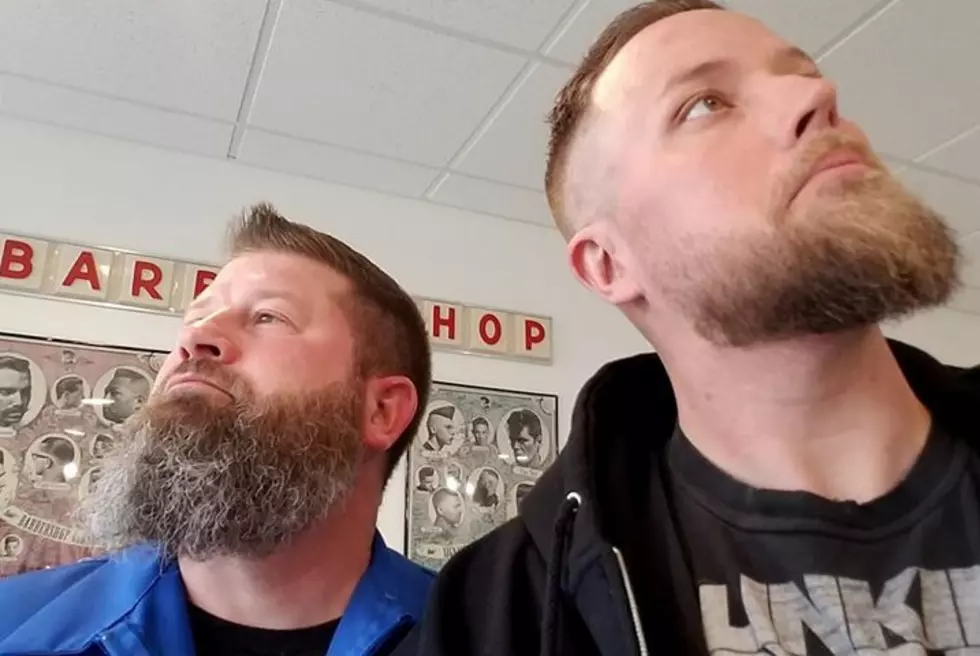
When the PMRC’s ‘Filthy Fifteen’ Targeted Metal: Dee Snider Looks Back
Loudwire is counting down the biggest moments in metal and hard rock, stretching from the dawn of Black Sabbath to the genre's promising future. Here, we take a look back at the moment when Dee Snider was called to testify in front of the Senate during their hearing over whether or not to put warning stickers on albums.
Should music be “rated” in the way that movies are so that parents are aware of the relative offensiveness of the lyrics of an album? Back in 1985, an organization called the Parents Music Resource Center -- the PMRC for short -- argued that such a rating system would be appropriate. To help support their argument, they came up with a list of songs, known as “The Filthy Fifteen,” including mainstream pop stars like Prince, Madonna, and Cyndi Lauper, along with Venom, Mercyful Fate, Black Sabbath, Judas Priest, AC/DC and Twisted Sister.
Eventually, the Senate's Committee on Commerce held a hearing on the "Contents of Music and the Lyrics of Records." Dee Snider of Twisted Sister testified, alongside Frank Zappa and the country singer John Denver.
We spoke to Snider about the experience: “I was down in Texas, this was during the Reagan era. It was ‘Conservatives Run Wild,’ which sounds like a TV show. Our shows are being picketed and protested by the religious right. I’m hearing that some moms wanna censor the music, and I’m not taking that seriously at all. Eventually, it starts getting a huge amount of attention.”
“So when I was asked to go and testify. I was like, ‘You’re asking me if I wanna carry the flag? It’s a battle for rock ’n’ roll? Fuck yeah! Give me the damn flag!’ And I ran out there like a lunatic before I realized I was the only one standing in the battlefield. I was a cocky bastard.”
Snider knew that he and Zappa would fight against a rating system, but they weren’t sure where Denver - a very middle of the road country artist - would fall in the debate. “He had all these Christmas specials, and he was so mainstream. We were worried that he was gonna be on their side. But his speech was actually more powerful than either of ours, because they did not expect that from him. He went after them. When he said, ‘I liken this to Nazi book burnings,’ oh my God, they were freaking out to be compared to Nazis. And so it was very powerful. Just because he didn’t look weird [like me or Zappa], people don’t remember his speech as much.”
The PMRC wanted a rating system that would describe the “objectionable” content: "X" for profane or sexually explicit lyrics, "O" for occult references, "D/A" for about drugs and alcohol and "V" for violent content. Ultimately, the RIAA committed to one sticker covering all of the above, that simply said, “Parental Advisory: Explicit Lyrics."
Years later, one of the PMRC’s leaders - Mary Elizabeth "Tipper" Gore - ended up on the campaign trail when her husband was running for Vice-President of the United States on the ticket with Bill Clinton. Clinton, of course, positioned himself as a younger alternative to his opponent, President George H.W. Bush.
“I wasn’t laughing, I was crying,” Snider recalls about the Gores positioning themselves as being advocates for a younger generation. “It was one of the things they got called on initially, Clinton was running as the ‘youthful president,’ showing up on ‘The Arsenio Hall Show’ playing saxophone with sunglasses on. They backpedaled, and didn’t take responsibility for what they did. They played it down like it was no big deal.”
Snider’s main issue with stickering albums: it’s the job of a parent, not the government, to decide what is appropriate for children. “I said, ‘We’re talking about 8, 9, 10, 11-year-olds here. Where are they getting the music from?’ Mom and Dad are buying it for them. Or they save their allowance and they buy one album. So I said, an album is 45 minutes to an hour. If you’re this worried, police your own children. When Eminem’s Marshall Mathers LP came out, the one with ‘Stan’ on it, that was huge in my house. And with that record, I used it as an opportunity to talk to my young kids, who were 12, 13 years old, about some of the subjects on the album. It was great way to talk about it.”
“When Tenacious D released their [2001 self-titled] album and my seven-year-old daughter wanted to listen to it because it was so funny, I made her her own copy without ‘Fuck Her Gently’ on it, because she wasn’t ready for ‘Fuck Her Gently.’ That’s my job, not the government’s. And mind you, the stores had now taken it one step further and were demanding record companies make censored versions of records for them, unbeknownst to the buying public. So when you went to Best Buy and bought Kid Rock’s [Devil Without a Cause] album, they removed ‘Fuck Off’ from that album.”
An oft-repeated line during that time was that the “Parental Advisory” sticker actually increased sales, as kids gravitated towards music with lyrics that would offend their parents. “Urban legend!” Snider says. “I hate when I hear that. I’m not mad at you for asking, but I hate when I hear it, and I welcome the chance to clarify. Me and Frank arrived to testify, and we found out that the RIAA, the Recording Institute, had already agreed to the more general sticker, a ‘voluntary’ sticker, which became mandatory. My concern was that it would be used to segregate albums and keep albums from the public.”
Which is, essentially, what happened. “Certain stores wouldn’t rack [prominently display] stickered albums, and other stores wouldn’t even carry some of those albums.” In that era, you had to go to a store to buy an album, and if stores didn’t carry the album, odds are, you wouldn’t be able to get it.
“It went one step further when Walmart and Best Buy started demanding record companies make edited versions of their records for chains, again, unbeknownst to the buying public. I would be cool with going, ‘Hey, they have a Tenacious D record without ‘Fuck Her Gently.’ Awesome, I’ll get that for my daughter.’ But it wasn’t promoted that way. You went to buy Kid Rock’s record, and you thought you were getting his actual album; you were getting their edited version, censored version.”
On top of that, Snider felt left out in the cold by his metal peers. “That was a frustration. Here I thought I was gonna lead the rock and roll army into battle, and I was abandoned. I was abandoned by my peers who decided to lay low. Some of them actually went after me. I remember Ronnie Dio going after me and saying, ‘Who decided you were gonna speak for us?’ And I said ‘The first thing I said was, ‘I can’t speak for my peers. I can only speak for myself.’’ That was the opening line. Ronnie later apologized for that. And then the fans, they were apathetic. They didn’t realize that this was censorship, and it was significant, and the importance of it.”
More From 96.3 The Blaze










